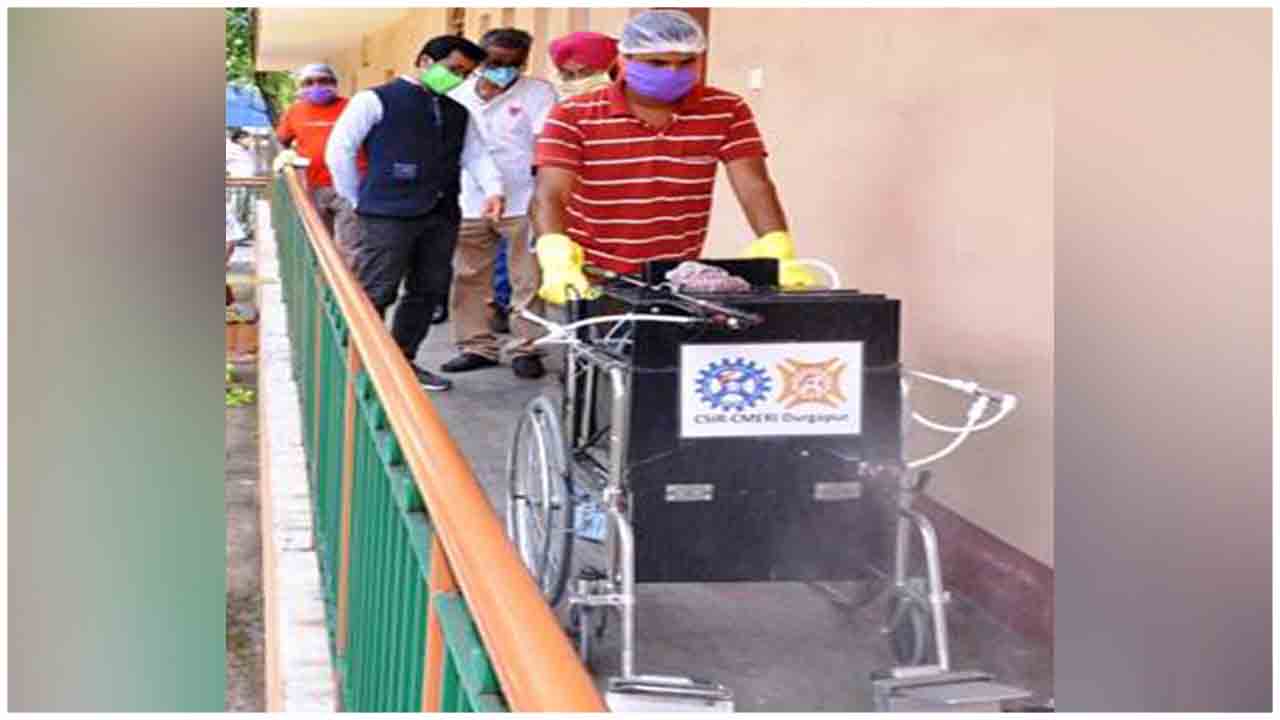Scientists at CSIR-Central Mechanical Engineering Research Institute (CMERI), Durgapur, have developed two mobile indoor Disinfection Sprayer units. These units can be used for cleaning and disinfecting pathogenic micro-organism effectively, especially in hospitals.
Called Battery Powered Disinfectant Sprayer (BPDS) and Pneumatically Operated Mobile Indoor Disinfection (POMID), these units can be used to clean and disinfect frequently touched surfaces such as tables, doorknobs, light switches, countertops, handles, desks, phones, keyboards, toilets, faucets, sinks, and cardboards. Intermittent usage of these disinfecting units can help minimize the risk of transmitting coronavirus to people who inadvertently come in contact with those surfaces.
The sprayer systems in both BPDS and POMID are designed with two-stage spraying units and separate storage tanks to clean and disinfect the indoor areas by the numbers of fixed and flexible nozzles set in the lower and upper tiers. There is also an industrial variant of the Disinfectant Sprayer for heavy usage and to cover a larger area.
POMID mobile indoor disinfectant unit is made by steel frames mounted on four wheels. This system comprises compressors, piping and fittings and spray nozzles. The hand-held flexible spray arm can be used in any direction as per requirement. POMID unit has two storage tanks each with a capacity of 10 litres. BPDS unit is a cordless machine with a two-nozzle spray system and an extended arm spray unit. It has a storage capacity of 20 litres and a battery back-up time of 4 hours in a single charge. The gross weight of the system is (empty tank) 25 kg.
“Most of the disinfectant sprayers prevalent in the market are based either on cleaning or disinfecting using a single chamber storage for the liquid and are pump-based. The droplets produced by a pump sprayer are much larger in size and the effective coverage of surface is lesser. However, the CSIR-CMERI developed indoor sprayer systems consists of dual-chamber storage for disinfectants and cleaning and have better nozzle design, better arrangement of nozzles and lesser droplet sizes. The sprayed disinfectant can thus cover a greater surface area for the specified volume of liquid”, said Prof. Harish Hirani, Director, CSIR-CMERI.

 Scientists at CSIR-CMERI launches indoor infection unit for fighting Covid19
Scientists at CSIR-CMERI launches indoor infection unit for fighting Covid19










.jpeg)











.jpg)








